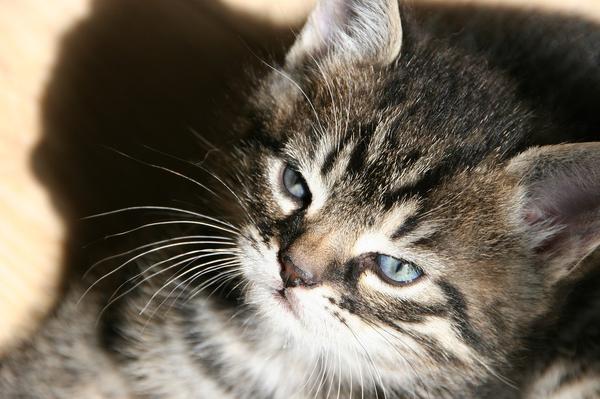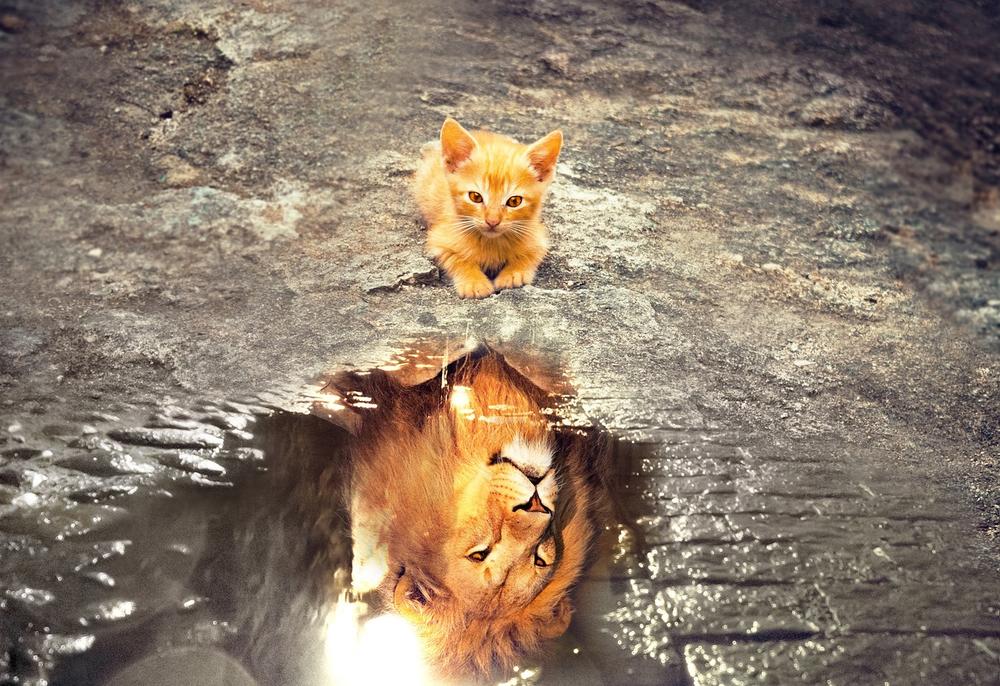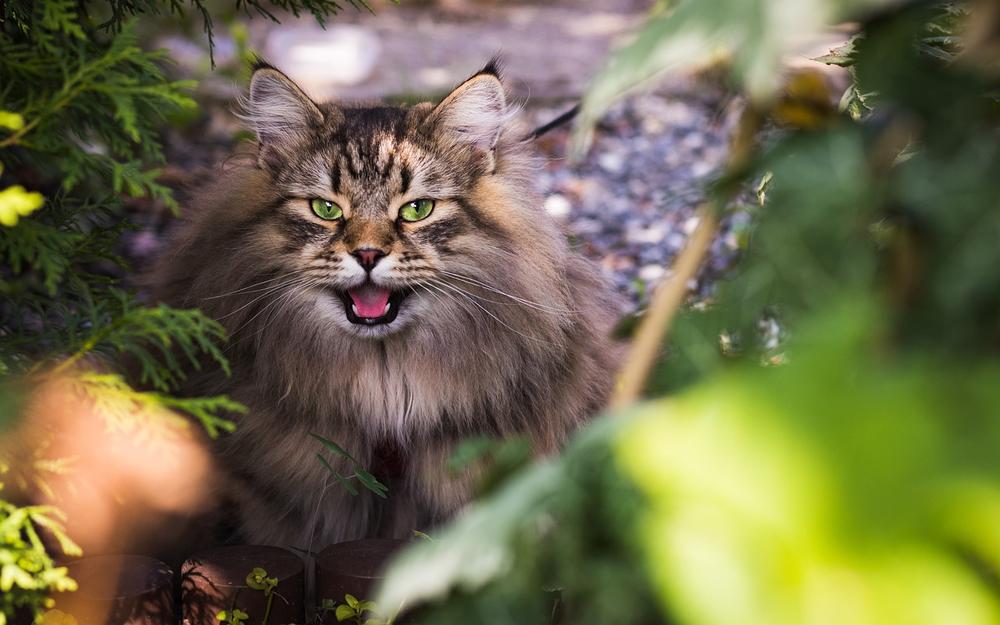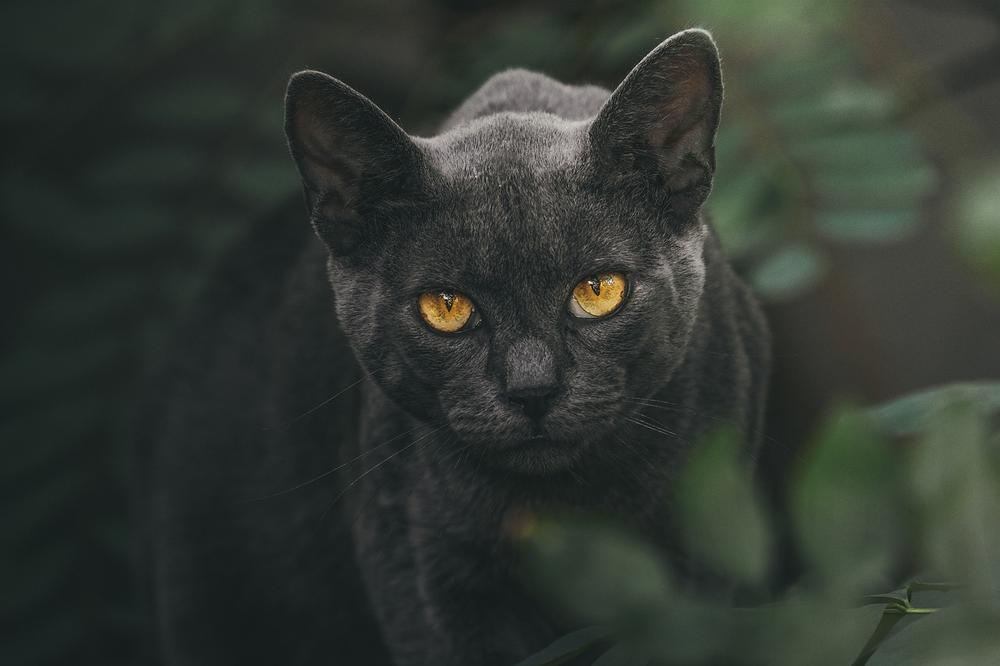Does Ammonia Keep Cats Away? (Is It Just a Ridiculous Myth?)

You'll agree with me when I say:
Cats can cause chaos in your yard or living space.
I mean, who wants their vegetable garden turned into a feline playground? 😼
And then there's the constant worry of scratched furniture or spontaneous nighttime serenades.
It's enough to make you want to tear your hair out.
But hey, what if I told you there might be a solution?
Let's dive into the debate on whether ammonia is the secret weapon to keep these furry trespassers at bay, shall we?
Does Ammonia Keep Cats Away?
While ammonia can temporarily deter cats, it is not a foolproof method for keeping them away. Cats may become accustomed to the smell over time, and safety precautions should be taken to prevent accidents. Each cat is unique, so observe their reaction and adjust accordingly.
Can ammonia keep cats away from certain areas?
Well, let's get into it.
Using ammonia as a cat repellent may cause confusion for our feline friends.
The strong scent can deter them temporarily.
Ammonia, alongside vinegar, black pepper, cayenne pepper, and bleach, is often recommended as a suitable cat repellent.
These are all ingredients you probably have at home so that's convenient!
However, keep in mind...
While ammonia can be somewhat effective in deterring cats, it won't guarantee that they stay away forever.

Cats are smart animals, and they might get used to or even ignore the smell over time.
Moreover, always think about safety first!
Remember, cats can easily knock down ammonia bottles and hurt themselves, or ingest it accidentally. So make sure to take necessary precautions when using any cat repellents.
With that being said, it doesn't hurt to give ammonia a try.
Take note of your specific cat's reaction and adjust accordingly. After all, each cat has its own personality and preferences.
Moreover, if you're eager to explore more options for deterring cats from specific areas, there's another useful resource I want to share with you.
It's my blog post titled Does Bleach Keep Cats Away.
In this guide, I provide insights and tips on whether using bleach as a cat repellent can be effective.
How to Use Ammonia to Keep Cats Away
Using ammonia-soaked rags or mothballs can keep pesky cats away from certain areas in your home or yard.
These methods have proven to be quite effective in protecting gardens and living spaces from unwanted feline intrusions.
If you want a more high-tech solution, there are cat repellent devices available that release ammonia into the air around them.

So, whether you prefer the DIY approach of soaked rags or the convenience of modern gadgets, you have options for keeping those curious kitties at bay.
And speaking of keeping pesky cats away, have you ever wondered if moth balls can effectively deter them from certain areas? If so, I highly recommend checking out my blog post Do Moth Balls Keep Cats Away.
In it, I delve into the effectiveness of moth balls as a cat repellent and provide some surprising insights.
If you're feeling curious, concerned, or hopeful, this article is a must-read for you.
Discover whether moth balls are just the solution you've been looking for to protect your home or garden from those curious kitties.
The Risks of Using Ammonia as a Cat Repellent
To ensure the safety of your cats and create a cat-friendly environment, here are 10 reasons to avoid using ammonia as a cat repellent:
- Ammonia's strong odor can attract male cats, encouraging them to mark their territory with urine. 😼
- Using ammonia as a repellent is not considered effective or humane.
- Cats may initially be confused by ammonia, but it could ultimately attract them to spray urine in that area.
- Ammonia can cause respiratory issues, skin burns, and digestive problems for cats.
- Ingesting ammonia can be particularly dangerous for cats and cause eye and lung irritation for both cats and humans.
- Ammonia use in gardens can harm plants, soil, wildlife, and seedlings.
- Cat poop may contain harmful parasites, which ammonia cannot effectively eliminate.
- Cleaning agents containing ammonium salts should be avoided for a cat-friendly environment.
- It is important to consider the associated human health risks when dealing with ammonia-based products.
- Alternatives to ammonia, such as natural deterrents or professional behavior training, are recommended for effective and safe cat repellents.
But wait, there's more to keeping your yard cat-free!

Discover the added benefits of spaying or neutering cats and simple steps you can take to prevent attracting stray felines.
Find out how small changes can make a big difference in creating a safe and tranquil environment for both you and your feline friends...
The Importance of Creating a Cat-Friendly Environment
Creating a cat-friendly environment is essential for your feline friend's well-being.

Here are some key tips to keep in mind:
- Provide multiple litter boxes throughout your home to ensure easy access and prevent accidents.
- Invest in scratching posts or pads to satisfy your cat's natural instinct to scratch, which helps keep their claws healthy and prevents furniture damage.
- Create vertical spaces with cat trees or shelves to give your cat the opportunity to climb and observe their surroundings from a higher vantage point.
- Offer plenty of hiding spots such as enclosed beds or boxes where your cat can retreat when they need some alone time or feel anxious.
- Enrich your cat's environment with toys and interactive games to keep them mentally stimulated and avoid boredom.
- Establish regular play sessions to provide exercise and help prevent weight gain and obesity.
- Keep toxic plants out of reach as some common household plants can be harmful if ingested by cats.
- Ensure your cat has access to fresh water at all times and consider a water fountain to encourage hydration.
- Create a safe outdoor space if you allow your cat outside, ensuring it is securely fenced to protect them from dangers like traffic or other animals.
- Groom your cat regularly and schedule routine veterinary check-ups to keep them healthy and identify any potential health issues early.
Through the incorporation of these strategies, you can establish a setting that fosters your cat's overall welfare and joy. 😺
Why Cats Are Attracted to Certain Areas
Cats go to certain places for a few reasons.
One reason is that they're attracted to the smell of ammonia, so they lick up spills on the floor. To stop this, clean those areas well and get rid of any tempting smells.
Also, cats like the fresh scent of urine, so you have to eliminate offensive odors and ensure there aren't any lingering scents that could bring them over.
Here are some more tips to discourage cats from going where you don't want them:
- Use sprays that repel cats.
- Don't leave food or water out in places where you don't want cats to go.
- Get scratching surfaces that are more appealing than they alternative options.
- Put things like aluminum foil or double-sided tape to keep cats away.
- Teach your cat with positive reinforcement to stay away from certain spots.
- Remember, consistency matters - keep cleaning to prevent attracting cats again.
- Try environmental enrichment techniques to entertain and engage your cat, making other places less appealing.
If you follow these steps, you'll create an environment that cats won't like and keep them away from places you want to protect.
But what if using ammonia isn't your preferred method?
Not to worry, there are plenty of other safe and cruelty-free options to effectively deter cats from invading your space...
Alternatives to Using Ammonia as a Cat Repellent
When it comes to deterring cats from entering yards or gardens, there are alternative methods that do not involve using ammonia.
Automated sprinklers equipped with motion sensors can serve as an effective and humane method.

These sprinkles help keep cats away without causing harm to any fauna.
In addition to sprinklers, there are several other alternatives worth considering:
- Utilize natural options: Planting aromatic herbs like lavender, rosemary, peppermint, lemon thyme, and lemongrass in your garden or using them as potted herbs can effectively discourage feline intrusion.
- Try vinegar, coffee grounds, or cayenne pepper: These substances can be used strategically to deter cats from certain areas or discourage congregating and urinating on property.
- Baking soda and vinegar: Suitable for cleaning a cat's environment and litter box, combining these two substances helps neutralize odors.
- Wash with soapy water: Regularly washing areas with soapy water helps remove urine odors that attract cats.
- Consider installing a fence or chicken wire: This serves as a general deterrent for cats entering gardens.
- Spread dark roasted coffee beans or citrus peels: These items placed around the garden can also be effective in repelling cats.
Cats can be kept away without the need for ammonia by implementing these alternative methods.
Remember, you need to prioritize the safety and well-being of all animals.
Conclusion: Better Ways to Repel Cats Safely
Key Takeaways:
- Ammonia is just one of many substances suggested as a cat repellent.
- Ammonia can be used to deter cats from specific areas, but not completely.
- Ammonia-soaked rags or mothballs can be effective in deterring cats indoors.
- Cat repellent devices emitting ammonia can protect gardens.
- Using ammonia as a cat repellent has mixed results and may attract male cats to spray urine.
- Ammonia is not considered effective or humane, and can harm both cats and humans.
- Ammonia can damage plants, soil, seedlings, and wildlife in gardens.
- Avoid cleaning agents with ammonium salts due to health risks and parasites in cat poop.
- Spaying or neutering cats prevents attracting other cats through hormone-driven behavior.
- Removing leftover pet food and keeping yards clean can prevent attracting stray cats.
- Offensive odors, such as ammonia and fresh urine, attract cats.
- Natural alternatives, like herbs and sprinklers, are effective, safe, and cruelty-free.
- Vinegar, coffee grounds, cayenne pepper, and catnip irritate cats.
- Soapy water removes urine odors, and citrus peels or coffee grounds repel cats.
- Installing fences or chicken wire can deter cats from entering gardens.
And that wraps up today's article.
If you wish to read more of my useful articles, I recommend you check out some of these: Why Does My Cat Lay on Me and Purr, Why Do Cats Eat the Hair Off the Floor, Why Do Cats Hate Closed Doors, and Why Does My Cat Wait Outside the Bathroom
Talk soon,
-Sarah Davis